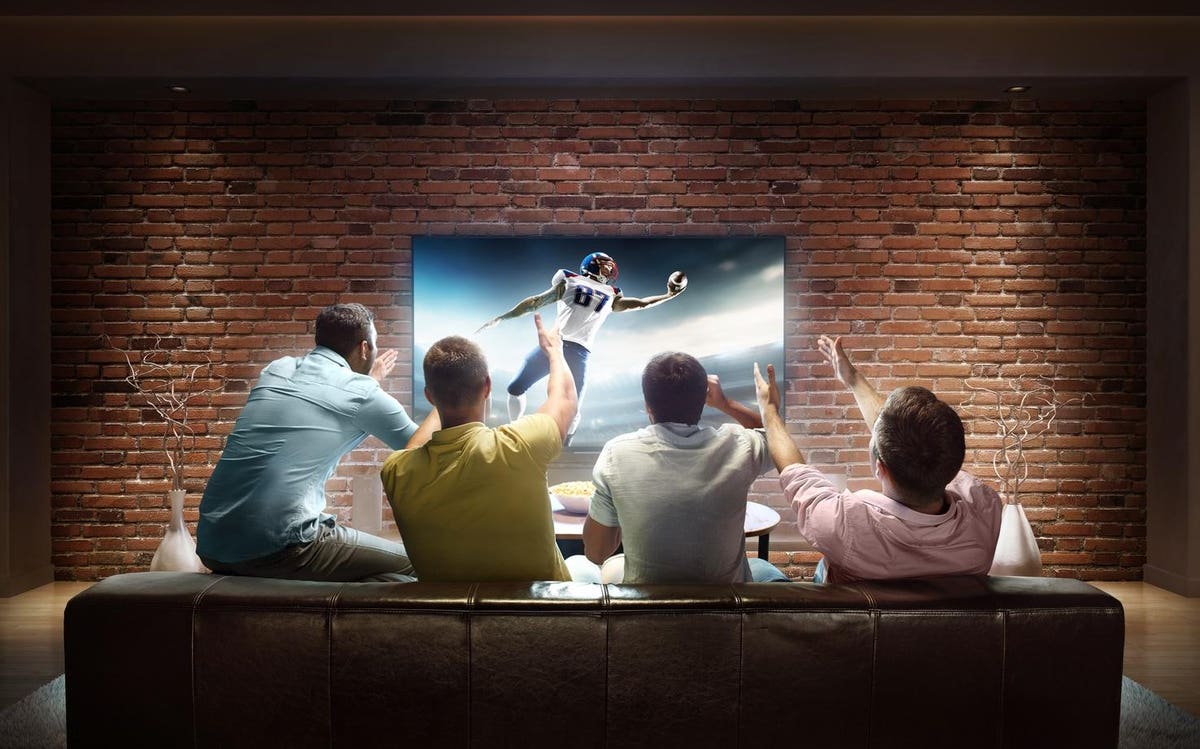Maybe Bob Iger should extend his contract as Disney CEO for another two years.
After all, it may take until 2028 for Iger, Disney and the rest of the entertainment industry –already mired in a grinding double strike of actors and writers, a lost fall TV season, a faltering theatrical business, and other challenges – to figure out the full implications of Charter’s gigantic chess move Thursday evening.
That move, letting ESPN, ABC and other Disney broadcast and cable operations go dark just as college football begins, is the next big inflection point in the entertainment industry’s thorough reshaping.
In the past, a fight right before the season between a cable TV service and a major content provider with NFL and college football generally led to a quick capitulation by the cable provider, and higher fees for the content company.
That is, until this week, when No. 2 cable provider Charter said no mas. Instead of continuing to limp into irrelevance amid rampant and accelerating cord-cutting, Charter said it wanted a new kind of deal from its biggest content supplier.
That Charter proposal would include access to not just 18 traditional Disney cable and broadcast networks (and Disney’s skein of owned & operated local stations) but also the ad-supported versions of its direct-to-consumer services, which include Disney+, Hulu and ESPN+ in the United States.
In dueling public pronouncements, Disney said its DTC operations have more and different content than its linear channels. Charter, Disney said, refused to offer a deal “that reflects market-based terms.”
In part that’s true, but that market is changing fast, for the worse. Charter needs to figure out what its cable business will look like going forward. What counts as “market-based” these days is getting harder to define.
Indeed, much of Disney’s most popular content already either also or only streams on Disney services. Linear hits such as Abbott Elementary, Grey’s Anatomy, and Reservation Dogs may run first on ABC or FX, but quickly show up online.
Meanwhile, Charter and other cable TV providers have been transitioning to faster-growing businesses, like selling high-speed broadband and low-cost mobile. Charter’s “house ads” frequently advertise its broadband network’s speed, security and reliability, or deals for its mobile service. Charter’s entertainment lineup is an afterthought.
And it’s not just Charter making that shift toward profitable new uses for its high-speed pipes to tens of millions of U.S. households and businesses. No. 1 cable company Comcast
CMCSA
Selling cable bundles just matters less these days. Yet Hollywood mediacos keep trying to jack up fees there to make up for huge losses in their nascent streaming services.
Rather than just going along with more fee hikes, Charter suggested that without a new kind of deal, it will move forward without ESPN, ABC or other Disney channels on its cable bundle, a near-unthinkable statement just a couple of years ago. Though it carefully worded the threat, Charter signaled it doesn’t want to explain higher fees for less popular Disney content to its remaining cable customers.
That may just be a negotiating position, but it’s also now something Charter is saying out loud.
“The idea that this is how it’s always been done is no longer true,” said Metropolitan Capital Advisors CEO Karen Finerman on CNBC.
Finerman, a CNBC regular, said she’d invested in Disney earlier this summer after a polarizing but influential Iger interview, talking about his vision for Disney amid tectonic shifts in the industry. But on seeing Charter’s move, Finerman said she’s sold her shares.
Like the striking unions, Charter wants a reset. Disney might be the first (and biggest) to get this request, but Charter signaled it won’t be the last, with plans to pursue similar deals across the industry. After all, Charter said, the market has changed, and its deals with content companies need to evolve too.
The unions too want a new kind of deal, one that includes better residuals, more transparency, and minimum payments for shows that end up on streaming services, which is to say just about everything. The WGA writers strike is now in its fourth month, the SAG-AFTRA actors strike is in its second.
The implications of all that sent a shiver down entertainment investors’ spines this week, presaging the next stage of decline for what has been Hollywood’s great money machine for three decades. If ESPN and ABC can’t fend off Charter and preserve the status quo, especially just as the football season starts, is nothing safe? In a word, no.
Disney shares were down Friday more than 2% to about $81 apiece, the lowest they’ve been since the pandemic’s first dark days in March, 2020. Among Disney’s major competitors, shares fell for most of them, other than legacy-free Netflix.
Worst hit was Warner Bros. Discovery, which plummeted 12%, to less than $12 a share. The company is wading through $45 billion or so in debt and depends heavily on revenue from its cable operations, including HBO, CNN, TNT and TBS.
But if Charter’s new proposal becomes an industry-wide demand, it’s going to be ugly fall for all the Hollywood media companies.
Read the full article here





